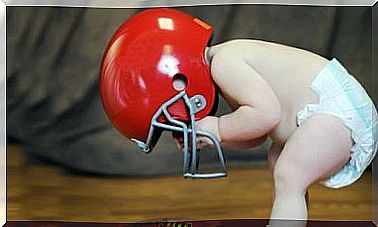The Importance Of Vitamin D In Children

Your baby is constantly growing, both physically and cognitively. Therefore, today in this post, we inform mom about the importance of Vitamin D in the body of children.
Vitamin D is essential for a good health and integral development of our child
Vitamin D is a substance that helps the body absorb different and important minerals, calcium being one of the most important. When consumed it benefits the strengthening of the teeth as well as all the bones, as stated in an article published in the magazine “JAMA”.
This vitamin It has different functions, especially helping the proper functioning of blood vessels, reducing cardiovascular risk. In addition, it is an excellent adjuvant for the immune system and especially for the respiratory system.
It is significant to note that our bodies produce their own vitamin D naturally, this happens as long as we are in frequent and prudent contact with the sun and the open air.
Why is it elementary to consume it with medical supervision?
This type of vitamin plays an essential role in being able to protect the good performance of the nervous system and bone structure of the body.
There is a specific amount to ingest vitamin D, naturally in food or in the form of supplements. But you must take into account the recommendations of your pediatrician before giving it, since there are important factors that can deteriorate the quality of life in your child.
The problems that are associated with the deficiency of this vitamin are:
- Diarrhea, liver and kidney diseases.
- Decreased bone mineralization, causing brittle bones.
- Rickets in children, according to a study published in 2018.
Foods with a source of vitamin D

There are several delicious foods where vitamin D plays an important role within its components. Some of them are:
- Yogurt.
- Fish.
- Orange juice.
- Milk.
- Cereals.
- Cheeses
- Egg (Yolk).
- Among others.
Your baby will feel great after consuming each and every one of these nutritious foods!
The amount of vitamin D varies in each food, and depending on your child’s age, the indicated portions may be increased or decreased.
Knowing more about the subject

Surely at some point you wondered what vitamins really are. The answer is that they are substances found in food that act as cofactors or intermediaries in metabolic reactions. The most notable functions are:
- The vitamin D in milk helps build teeth and bones. This element is present in cereals, fish, liver and eggs. It is for this reason that they should not be absent from our little one’s diet.
- Milk, liver, vegetables, orange fruits and dark leafy vegetables are high in Vitamin A. Carrot in particular has the property of significantly improving night vision.
- Vitamin C helps with the healing process and you get it in citrus fruits, red peppers, broccoli and Kiwi.
- To make energy, you need Vitamin B intake. Grains, meats, eggs, seafood, and whole grains and fish are excellent options to guarantee the doses that children especially need.
Vitamin D is essential in the body
Nature is a great provider of benefits for human beings and sunlight is one of them. It is for this reason that doctors recommend parents to expose their newborn babies to the sun for 20 to 30 minutes. In this way we ensure the production of vitamin D in the baby, which can prevent the appearance of complex diseases in adulthood.
This whole topic is relative due to the skin tones of each individual child. Babies under 6 months should not be exposed directly to sunlight because it can deteriorate their delicate. At this age, children receive the necessary dose of Vitamin D through breast milk.
Both children and adults are at risk of suffering from a vitamin D deficiency, to avoid this a healthy diet will undoubtedly be the key. In cases where the dietary intake is not sufficient, supplementation may be used to alleviate this deficiency.










